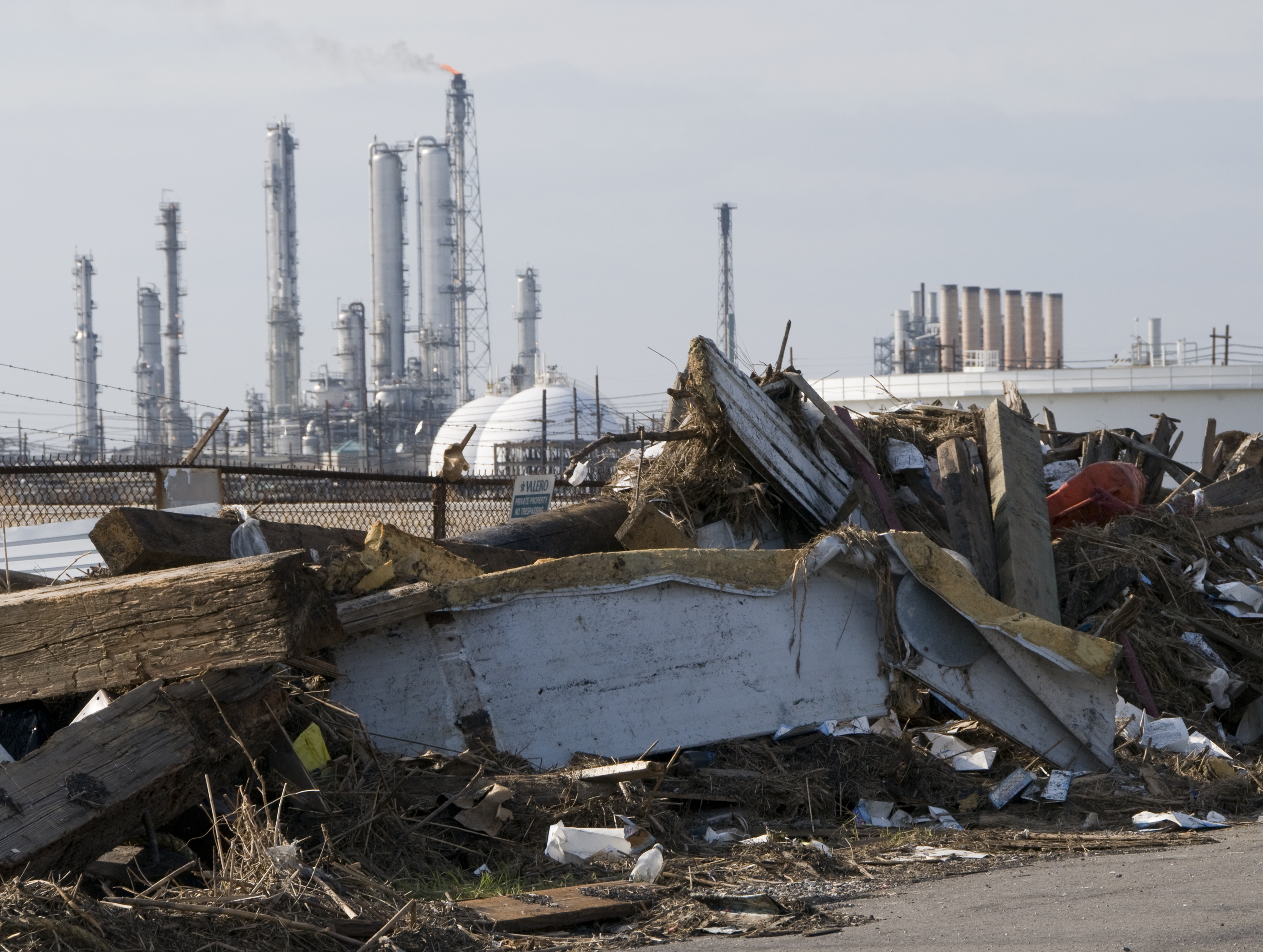
Source: FEMA Photo Library
In 2015, after a long battle, we celebrated the closing of major loopholes in the Clean Air Act (CAA) which had allowed exemptions for industrial facilities’ release of harmful air pollution during episodes of startup, shutdown, or malfunction (SSM).
EPA had published a final regulatory action under the CAA requiring 36 states, including Texas, to eliminate provisions from their State Implementation Plans (SIPs) that had exempted massive amounts of pollution and allowed polluters to avoid any consequences for violating Clean Air Act standards during SSM episodes. So what does that mean? Prior to 2015, during extreme weather events, such as flooding and hurricanes, refineries that executed a forced shutdown could utilize the loopholes to unleash unlimited amounts of pollution. That means people living in communities like in Corpus Christi (often called “refinery row”) were subject to dangerous emissions that are much higher than level typically allowed to be released by power plants.
Even when large industrial facilities are complying with Clean Air Act limits, fence-line communities near large coal plants, refineries, and other heavy industrial plants -- often low-income communities of color -- are disproportionately overburdened with air pollution, asthma and all the health problems that go along with dirty air.
When a facility is coming online, shutting down, or experiences a malfunction, nearby communities suffer even more. The protections of the Clean Air Act are thrown aside and the facility is given a free pass to emit huge amounts of pollution. When facilities are in these “upset” modes, the pollution is off the charts because the SSM loopholes allow industry to turn off pollution controls that normally limit emissions. As a result, many facilities pump out much more pollution during these periods than during the course of its normal operations for the entire year. According to the Texas Commission on Environmental Quality (TCEQ), power plants in Texas used the loophole in 97% of the cases. This included those that released 2,000 tons of sulfur dioxide and other volatile organic compounds (VOC’s) into the air in Houston during Hurricane Harvey.
Modern pollution controls and better management practices can dramatically reduce pollution during upset events, but because of the SSM loopholes, industry has not had an incentive to adopt these measures. Companies who care about their neighboring communities have shown that industry can do better. The Obama-era SSM rule was designed to give industry the push it needs to adopt better practices and technologies to help reduce the pollution burden that falls on the shoulders of vulnerable communities.
Eager to revive these exemptions and avoid requiring Industry to take the steps necessary to protect public health, the Trump EPA issued a proposal this April to reverse the Obama SSM rule in Texas, which directly puts these communities at an increased health risk. The SSM rule was set to protect public health and also to hold polluters accountable for massive pollution bursts that disproportionately impact low-income communities and communities of color who live around industrial plants.
By catering to the dirty fossil fuels industry, this rollback directly impacts human lives. And here in Texas, home to hundreds of chemical plants, oil refineries, coal plants, and natural gas facilities, we raise concern for communities like in Corpus Christi, where the "refinery row" residential districts are situated along the fence lines of major oil refineries and industrial facilities. The pollution and revolting stench from these facilities is inescapable in these communities and SSM events are frequent, including flaring, flames, plumes of noxious black smoke and noxious chemical smells.
We stand with our communities and against the proposal to rollback protections which would place families in danger.